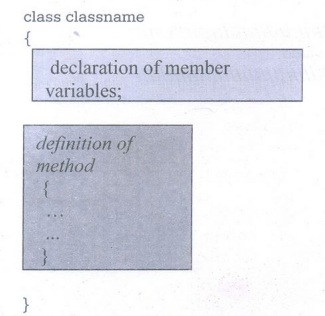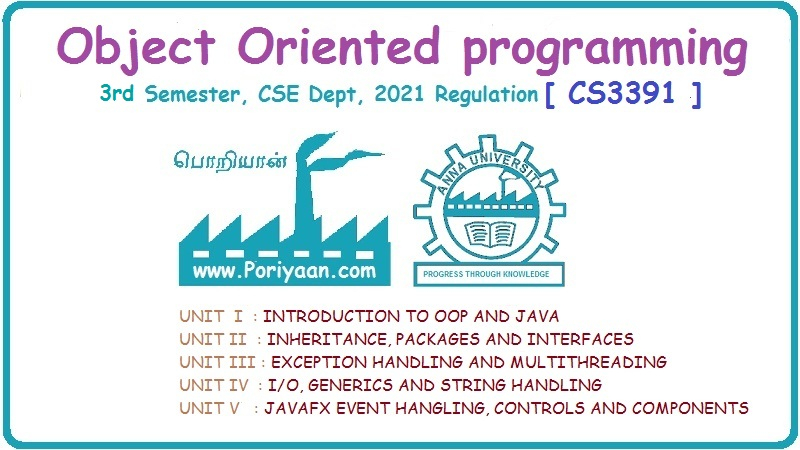Object Oriented Programming: Unit I: Introduction to OOP and Java
Methods
with Example Java Programs
Methods are nothing but the functions defined by the particular class.• Return type of the methode, • name of the method, • parameter passed to the method, • body of the method
Methods
Methods are nothing but the functions defined by the particular class.

There
are four parts of the method -
• Return
type of the methode
• name
of the method
• parameter passed to the method
• body
of the method
For example

Parameter Passing
• Parameter
can be passed to the function by two ways-
1. Call
by value
2. Call
by reference
• In the
call by value method the value of the actual argument is assigned to the formal
parameter. If any change is made in the formal parameter in the subroutine
definition then that change does not reflect the actual parameters.
• Following
Java program shows the use of parameter passing by value-
Java Program
//Program implementing the parameter passing by
value
public
class ParameterByVal
{
void
Fun(int a,int b)
{
a=a+5;
b=b+5;
}
public
static void main(String args[])
{
ParameterByVal
obj1=new ParameterByVal();
int a,b;
a=10;b=20;
System.out.println("The
values of a and b before function call");
System.out.println("a=
"+a);
System.out.println("b=
"+b);
obj1.Fun(a,b);
System.out.println("The
values of a and b after function call");
System.out.println("a=
"+a);
System.out.println("b=
"+b);
}
}
Output
The
values of a and b before function call
a= 10
b= 20
The
values of a and b after function call
a= 10
b= 20
Program Explanation
•The
above Java program makes use of the parameter passing by value. By this
approach of parameter passing we are passing the actual values of variables a
and b.
• In the
function Fun we are changing the values of a and b by adding 5 to them. But
these incremented values will remain in the function definition body only.
After returning from this function these values will not get preserved. Hence
we get the same values of a and b before and after the function call.
• On the
contrary the parameter passing by reference allows to change the values after
the function call. But use of variables as a parameter does not allow to pass
the parameter by reference.
• For
passing the parameter by reference we pass the object of the class as a
parameter.
• Creating
a variable of class type means creating reference to the object. If any changes
are made in the object made inside the method then those changes get preserved
and we can get the changed values after the function call.
Object Oriented Programming: Unit I: Introduction to OOP and Java : Tag: : with Example Java Programs - Methods
Related Topics
Related Subjects
Object Oriented Programming
CS3391 3rd Semester CSE Dept | 2021 Regulation | 3rd Semester CSE Dept 2021 Regulation
